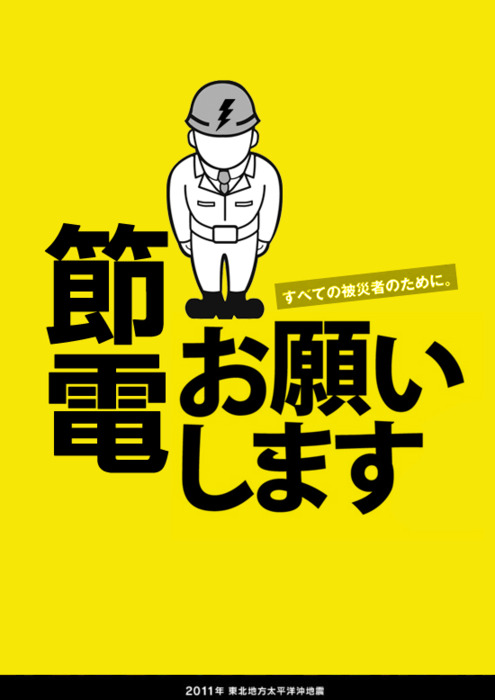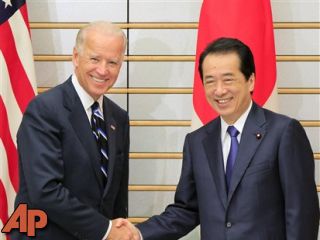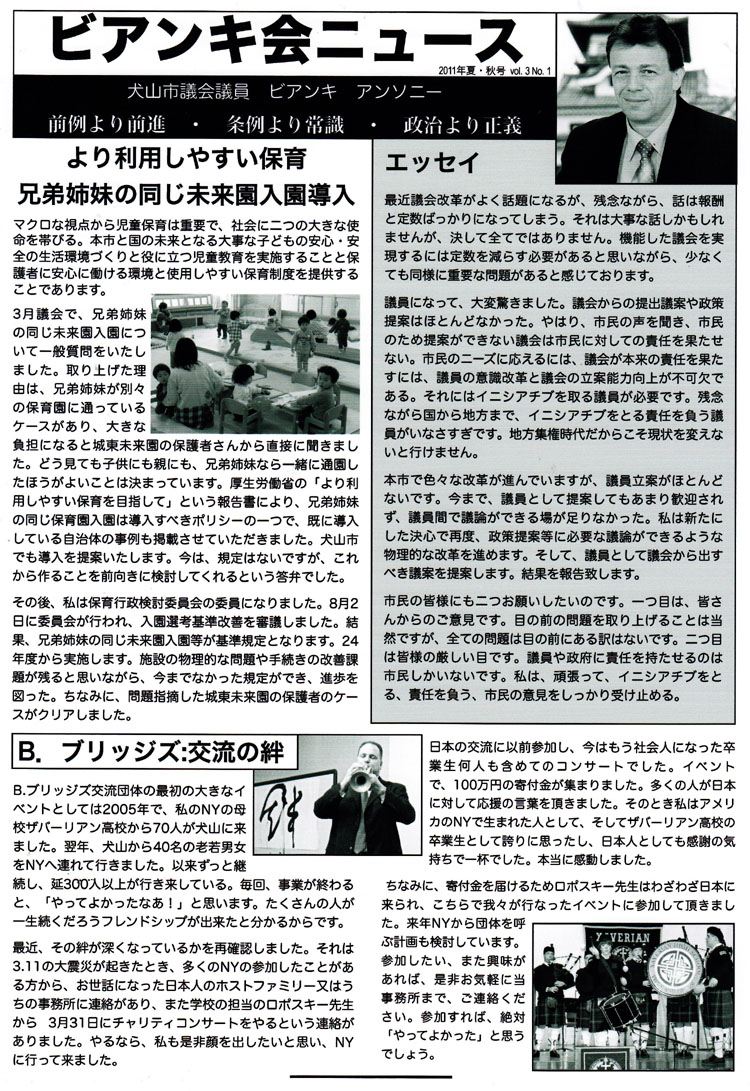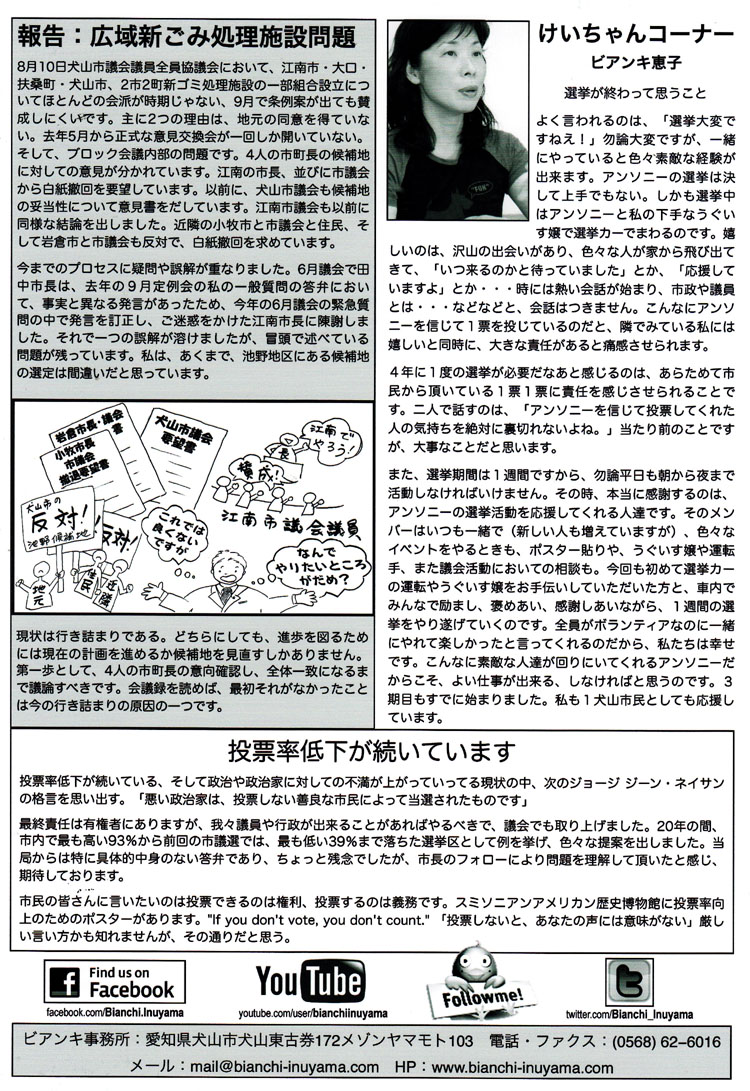***********************
WIT Life is a periodic series written by professional Writer/Interpreter/Translator Stacy Smith (Kumamoto-ken CIR, 2000-03). She starts her day by watching Fujisankei’s newscast in Japanese, and here she shares some of the interesting tidbits and trends together with her own observations.
Time truly flies, as I can’t believe it has been so long since I’ve been here. At any rate, tadaima!
Although almost nine months have passed since the earthquake/tsunami in Fukushima, and I am glad to say that the recovery effort is still on people’s minds. Last night I went to the Artist Showcase and Fundraiser for Japan held at Ambassador Shigeyuki Hiroki’s Residence. The event featured a reception honoring a visiting Fukushima prefectural government delegation to New York, along with artwork (some from JET alumni!) available for silent auction purchase.
Ambassador Hiroki offered his comments, and a representative of the Fukushima prefectural governor read a letter from him on his behalf. On display were Fukushima goods, and guests partook of Fukushima sake as well as Read More
JETAA USA establishes Sister City Support System
Since just before the 2011 National Conference in DC this past summer, a few of us (e.g., U.S. Country Reps Jessyca Wilcox and Mike Shu as well as myself) have been working on setting up a JETAA USA system to encourage JETAA chapters to connect with and engage with their sister city/ prefecture counterparts in Japan. We met with Sister Cities International prior to the start of the conference (SCI is HQ is based in DC) to see how we might get this put together and how we can have a symbiotic relationship.
We established that some of the key needs of U.S. sister cities are the ability to communicate in Japanese and familiarity with and ability to navigate the Japanese culture, which are key ingredients for helping to grow, re-inspire, or create those relationships. This, as you are likely well aware, is the exact skill set we, as JET alumni, possess.
While JETAA has not yet established any formal relationship yet with SCI, JETAA is very much looking forward to working with them more closely in the future. But in the meantime, JETAA has begun to lay necessary groundwork to enable the JET alumni network and community to begin providing support when ready.
This has now been created in the form of the JETAA USA Sister Cities/ States JET Initiative (thanks to a lot of behind the scenes work by Jessyca Wilcox). Click the link (or read further down) for more background about this project and the tools that will enable JETAA chapters to get started. Simply connecting your JETAA chapter with your Japanese counterpart is valuable in and of itself! It demonstrates to local governments in Japan one more way that the JET alumni community is eager to provide “Return on JET-vestment” to our adopted home country.
WIT Life #184: NYT mag Haruki Murakami profile and yaeba
******************************
WIT Life is a periodic series written by professional Writer/Interpreter/Translator Stacy Smith (Kumamoto-ken CIR, 2000-03). She starts her day by watching Fujisankei’s newscast in Japanese, and here she shares some of the interesting tidbits and trends together with her own observations.
This weekend’s NYT featured two interesting Japan articles in the magazine and Sunday Styles section. The former features the country’s living cultural treasure novelist Haruki Murakami, whom the article’s author spends time with in Tokyo to dissect his newest book 1Q84 as well as his older works.

The latter article discusses the popularity of 八重歯 (yaeba), or double teeth that look that fangs (aka “snaggleteeth”). Apparently this fashion calls not for perfect smiles, but unstraight teeth. Women are asking dentists to affix plastic fronts to their real teeth to create artificial yaeba, as shown here in the picture.
Upon asking two young Japanese women who were visiting the city about yaeba, they said it was the first they had heard of it. I’ll see what further informal surveys reveal about whether this is a real trend, or just something being sensationalized by the media.
Important: The official need for JET alum groups by prefecture
**************
It’s official. Soumusho (Ministry of Internal Affairs) sees great value in the JET alumni community being organized and identifiable by prefecture and would like to see such groups formed and put to better use. This according to an announcement that came through the official bureaucratic news source (iJAMP). (See very unofficial translation summary below.)
Why do they care so much about this idea? Because the local governments (i.e., the prefectures) need to see the long term benefits of JET to really make it worth it for them to continue to hire JETs and to contribute funding and resources to the program. They need to see that JET alumni are supporting and contributing to longer term economic benefits in various ways. This is the concept of Local Return on JET-vestment.
Fortunately, JET alum groups by prefecture have existed for the past year thanks to LinkedIn. And many have already joined. If you have not joined one yet, I strongly encourage you to do so now. (It also couldn’t hurt to join any of the various professional JET alum LinkedIn groups as well. Or start a new one yourself if you see a field not covered.)
Here’s the unofficial translation summaries of the official communication:
Soumusho has called on the prefectures to promote the creation of JET OB networks as a resource in their internationalization and overseas business initiatives.
To encourage this, Soumusho is allowing prefectures from this year to fund travel and other expenses for alumni out of their local allocation tax revenues, and is asking prefectures to work with municipal governments.
It is further hoped that these alumni will be a source of accurate information on Japan. And there have been many instances where alumni have gotten involved in fundraising and other support for the affected areas through their deep connections to their communities in Japan.
While there have been many groups formed by alumni according to their countries of origin, schools they taught at or years on the Program, there are few instances of groups formed by prefecture and it is difficult to really say that alumni are a resource to these areas. The importance of prefecture alumni groups was pointed out at the 25th anniversary symposium, leading to the call to form prefecture-level networks.
The notice mentioned Tottori as a good example of a prefecture making the best use of its JETs, having its CIRs act as “Tottori Hometown Ambassadors”, submitting policy proposals and contributing articles to its informational magazine. It also uses its “World Tottori Fan Club” to send out information to its ALT alumni.
WIT Life #183: 10,000 Free Flights to Japan! (and the best bonsai I’ve ever had)
************************************************
WIT Life is a periodic series written by professional Writer/Interpreter/Translator Stacy Smith (Kumamoto-ken CIR, 2000-03). She starts her day by watching Fujisankei’s newscast in Japanese, and here she shares some of the interesting tidbits and trends together with her own observations.
Last night I had the chance to attend an event at the Modern sponsored by the Japanese beverage company Suntory, for the unveiling of their newest whiskey here in the States, Hakushu. We first enjoyed a tasting of this offering, along with samples of favorites Yamazki and Hibiki. Chef Gabriel Kreuther prepared an amazing menu to pair with these whiskeys, featuring such treats as foie gras and caviar.
However, for me the best part of the meal was the Read More
JET alum George Rose quoted in NYT feature on Hideki Irabu
JET alum George Rose (Fukushima-ken, 1989-91), former interpreter for Hideki Irabu as well as former JETAA NY President, is quoted in a Sunday, October 9 feature article “Irabu Got Lost on the Way Back“) in the New York Times about Japanese pitcher Hideki Irabu who recently committed suicide. The article gives the impression that George was one of the few U.S. baseball colleagues who actually got to know Irabu personally.
Below is a link to the full article along with the quotes by George:
“When I saw him last summer, he told me he was having a midlife crisis,” said George Rose, who befriended Irabu when he worked for two years as his interpreter on the Yankees. Rose then repeated what had been a kind of conventional wisdom about the Irabu: he had a big heart, but could be his own worst enemy.
**********
“He was kind of searching for what to do next,” said George Rose, his old interpreter, “and he never did.”
For additional background on George, here’s a link to a 2008 JETAANY Newsletter interview with George Rose (“Pride of the Yankees: Far East Edition“) by Stacy Smith (Kumamoto-ken CIR, 2002-03).
WIT Life #182: Japan Connections where you Least Expect them
***************************
WITLife is a periodic series written by professional Writer/Interpreter/Translator Stacy Smith (Kumamoto-ken CIR, 2000-03). She starts her day by watching Fujisankei’s newscast in Japanese, and here she shares some of the interesting tidbits and trends together with her own observations.
My latest International Visitor Leadership Program travels bring me to Riverside, California for the first time, host of the recent Sister Cities International conference highlighted here in JetWit. My group and I are staying in the lovely Mission Inn (referenced in the Sister City write-up), a national historical landmark established in 1876. Today we took part in a tour of the facility, and I was surprised to find out about its Japan connection!
Founder Frank Miller wanted to create a resort hotel for Riverside, which by the 1890s was Read More
JETAA Music City to host it’s first Nihongo Dake Dinner!
**************
Thanks to JETAA Music City President (and Arkansas Cherry Blossom Princess) Terry Vo (Kumamoto-ken, 2007-09) for the heads up:
Join us for a Japanese-Style Potluck on October 4, 2011. Come mingle, eat, drink, and be merry! This event is open to our Friends of JET Alum as well so please feel free to invite your family and friends! Please bring either your favorite Dish, Dessert or Beverage!
RSVP DEADLINE: September 30 to Leah atvp@jetaamc.org
Location: 1812 Cahal Avenue, Nashville TN 37206″
WIT Life #181: Volunteer interpreter in Tohoku
WITLife is a periodic series written by professional Writer/Interpreter/Translator Stacy Smith (Kumamoto-ken CIR, 2000-03). She starts her day by watching Fujisankei’s newscast in Japanese, and here she shares some of the interesting tidbits and trends together with her own observations.
For those want to help out with Japan’s recovery effort and have Japanese language skills, here’s a great way. Please see below message regarding details of a 6-week volunteer interpreting opportunity in the disaster area, and contact Laura/Jiella directly if you are interested. For those who want to help but aren’t able to make it over, think about picking up the new Travel Guide to Aid Japan. It features some fabulous sites in Japan, some of which you might not be aware, written up by an interesting mix of celebrity contributors. All proceeds from its sales (minus expenses) will be donated to the Japan Red Cross for use toward disaster recovery efforts.
———-
Dear all,
Many of you have heard of the group All Hands Volunteers, an American
NGO that has been working in Ofunato and Rikusentakata in Iwate
Prefecture doing tsunami relief since right after the March 11
disaster. This is an amazing organization that harnesses the power of
volunteers in disaster response. For those of you who were on the
USJLP Japan trip this year, you heard about them in my presentation.
Spencer and I were up in Ofunato again last weekend volunteering with
All Hands and we continue to be very impressed – there were over 90
Japanese and international volunteers working together to clear
highway ditches and rice field drainage systems, to clean and retouch
damaged photographs, and to remove damaged materials from homes
devastated by the tsunami. This organization has made a huge
difference to the people of Ofunato and Rikusentakata, and there were
posters all over town thanking All Hands for their efforts.
All Hands is continuing their project in Tohoku until November 12 and
they are in urgent need of an interpreter for these next 6 weeks of
the project.
Food, lodging and a (small) salary will be provided, and this
interpreter will be heavily involved in the day to day management of
the project, alongside an American Project Director. The interpreter
needs to speak very good English and Japanese, and will need to
relocate to Ofunato right away for the next 6 weeks.
This is a great opportunity to make a big difference and contribute to
the recovery of Japan. Please see this link for more information
about the project: http://hands.org/projects/project-tohoku/
Please let me and Jiella Esmat (jiella@hands.org) if you or anyone you
know is interested. Feel free to pass this around.
Thanks so much for your help,
Laura (USJLP ’11, ’12, and Board Member of All Hands Volunteers)
From: Laura Winthrop Abbot
Date: September 30, 2011 20:43:01 CDT
To: usjlp@listserve.com
Subject: [Usjlp] Interpreter needed urgently: All Hands Volunteers Project Tohoku
WIT Life #180: 節電の夏
WITLife is a periodic series written by professional Writer/Interpreter/Translator Stacy Smith (Kumamoto-ken CIR, 2000-03). She starts her day by watching Fujisankei’s newscast in Japanese, and here she shares some of the interesting tidbits and trends together with her own observations.
Hisashiburi and following the celebration of 秋分の日 (shubun no hi, or Autumnal Equinox Day) this past weekend, welcome to fall! Commemorating the passing of the season is an editorial from this morning’s NYT, which discusses the 節電 (setsuden, or energy saving) measures the Japanese undertook this summer and their success.
Also, make sure to check out this series of setsuden posters mentioned in the article. They were created by a community of graphic designers in response to a call to arms on Twitter. The one pictured here is a spoof on the ubiquitous construction poster and reads, “Please save energy,” and in smaller lettering on the side, “For all of the disaster areas.”
2011 JLPT Registration Deadline 9/30
Via JETAA USA:
The JPLT will be offered this year in the following locations:
- Atlanta, Georgia (Georgia State University)
- Boston, Massachusetts (Northeastern University)
- Chicago, Illinois (De Paul University, Lincoln Park)
- Fayetteville, Arkansas (University of Arkansas, Fayetteville)
- Honolulu, Hawaii (University of Hawaii at Manoa)
- Los Angeles, California (University of Southern California)
- New York, New York (Lehman College, The City University of New York)
- Philadelphia, Pennsylvania (Villanova University)
- San Francisco, California (San Francisco State University)
- Seattle, Washington (University of Washington)
- Washington, DC (Georgetown University)
“If you intend on taking the test, you must have your registration paperwork in by Sept. 30th!! This is not a postmark date, so send it quick! For more details, see The Japan Foundationwebsite.”
WIT Life #179: Japan in Transition, Yet Again
WITLife is a periodic series written by professional Writer/Interpreter/Translator Stacy Smith (Kumamoto-ken CIR, 2000-03). She starts her day by watching Fujisankei’s newscast in Japanese, and here she shares some of the interesting tidbits and trends together with her own observations.
Yesterday’s NYT featured two articles relating to Japan’s financial and political situations. The first discusses how Moody’s lowered Japan’s credit rating by one step to Aa3, the fourth-highest grade (Standard & Poor’s had brought them down to AA back in January, putting them on par with the U.S.). The second recounts Vice President Biden’s recent trip to Japan, including a stop-off in of Tohoku. He served as a source of encouragement to some of the survivors he met in the disaster area.
Biden’s visit came at a time of great political turmoil, as it is forecast that Prime Minister Kan will be stepping down next week. A partywide ballot to decide a new party leader is expected on Monday, with the new leader being appointed prime minister on Tuesday. Kan indicated his desire to Read More
Latest Newsletter from Councilman Anthony Bianchi
************
Here’s the newest newsletter from JET alum and Inuyama City Council Member Anthony Bianchi (Aichi-ken, Inuyama-shi, 1988-89):
***Page 1***
CLICK HERE for more JETwit posts about Anthony Bianchi.
Show off your translating skills! An English translation or summary of some or all of the above would be great if any readers are up for it. Full credit will be given!
Job: Senior Broadcast Co-ordinator, BBC World News, Japanese Service
Via TVT Japan. Please make sure to mention JETwit if you apply. Yoroshiku!
——————————————————————
TVT Japan is responsible for providing the Japanese service of BBC World News. It is part of the TVT group of companies with headquarters in London and offices in Tokyo and Singapore. The group provides translation, versioning and post-production services to Broadcasters all over the world including BBC World News, BBC Worldwide Channels, BBC World Service, UKTV, NBC Universal and Disney.
Position: Senior Broadcast Co-ordinator, BBC World News, Japanese Service
Location: Tokyo
Type of hire: Permanent, full-time.
Responsibilities:
As Senior Broadcast Co-ordinator you will play a vital role in ensuring the overall success of the Japanese Service of BBC World News. Reporting to the Operations Manager you will lead the team responsible for the Japanese versioning of live news and current affairs programming.
The role centres on the day to day running of the Japanese studio in Tokyo. In addition to key duties such as monitoring of Japanese audio output and operation of broadcast systems the Senior Broadcast Coordinator is responsible for investigating and reporting on broadcast issues as well as local staff coordination and financial administration.
Out of hours response for broadcast issues is required for this role. Read More
WIT Life #178: Fukushima Fallout, Nuclear and Bureaucratic
WITLife is a periodic series written by professional Writer/Interpreter/Translator Stacy Smith (Kumamoto-ken CIR, 2000-03). She starts her day by watching Fujisankei’s newscast in Japanese, and here she shares some of the interesting tidbits and trends together with her own observations.
Interesting article from today’s NYT about the government’s (mis)handling of the post-Fukushima disaster, specifically not providing information when it was available regarding potential radiation levels. The public is now not only fearful but outraged, claiming that the government cared more about covering up than about its own citizens. One notable aspect of the article appeared on the last page, discussing a group lawsuit being carried out by Read More





